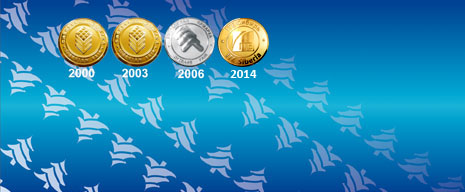 |
 |
INFORMATIZATION OF EDUCATION
Features of Distance Learning of Students in the Disciplines of the Humanities Cycle
Currently, the introduction of digital technologies in the educational process is an urgent direction in the professional training of specialists in the system of higher professional education and can significantly improve the quality of education. The article substantiates the need for the use of digital and information technologies in organizations of higher professional education.
Creating an LMS Course for Distance Learning of Students of Non-Linguistic Specialties
This article is based on our experience of creating and implementing distance English courses at the Siberian Institute of Management branch of RANEPA, which has implemented a distance learning system and provides academic programs both traditionally and remotely. The article is devoted to the current problem of filling LMS content with didactic, video, audio materials and other educational resources. The educational potential of the learning management system (LMS) is considered.
Digitalization of Higher Education and the Competence of the Future: the View of Students
The article made a deep and detailed analysis of foreign and domestic studies on the digitalization of education, aspects of the emergency introduction of online education in the spring semester of the 2019–2020 school year. The theoretical aspects of industry 4.0, labor market automation, «hard» and «soft» competencies and skills models of the future are considered.
Digital Technologies for the Inclusion of Children With Disabilities
The objective is to analyze the importance of the role of the teacher in the inclusion of children with disabilities and the need for their emancipation, to overcome accessibility gaps with more effective assistance to avoid educational segregation and achieve equitable and inclusive educational environments.
Internet-based Foreign Language Vocabulary Training of Non-linguistic University
The paper discusses issues connected with Internet-based vocabulary training at foreign language classes in nonlinguistic university. The advantages of usage of Internet-resources are presented. Internet is considered as a training tool of various kinds of speech activity at foreign language classes. Having proved the importance and necessity of the implementation of Internet technologies in foreign language training, we have identified and described Internet resources that allow enlarging vocabulary as it contributes to mastering various aspects of speech activity.
The role and place education of digital technologies in the development of a successful person
The aim of the study is to develop a concept for the use of digital technologies in modern education for the formation of a successful personality, therefore, the article considers the relationship between effective inventive activity and a person’s success in life. Research method - structural and functional analysis of the education system. To identify problems in the existing educational process, the results of this analysis are presented. The number of common and harmful functions of individual elements of the educational process is determined.
IT-technologies as a Device of Mathematics Olympiads at Universities
The article discusses the feasibility of introducing Internet technologies into the educational process when conducting extracurricular activities, in particular, student olympiads in mathematics as part of the process of digitalization of education. The place of the subject olympiads in the system of higher education is analyzed, as well as the role of the olympiad as an environment for the development of digitalization tools. The experience of organizing student mathematical Olympiads using digital distance technologies is presented and considered.
Digital Technology in Teaching Foreign Language Students of Higher Education Institutions
This article focuses on digital storytelling technology in foreign language (FL) classes for non-linguistic students. The application of this technology develops varied surveys, both organizational and communicative skills for students. In practical foreign language classes, students engage in the creation of digital storytelling, and thereby investigate the learning material more successfully, thus increasing their academic performance. In the process of working on this technology it also helps to increase the level of students’ multimodal literacy.
Image of a Modern Foreign Language Teacher in the Digital Educational Space
The article focuses on studying the image of a current foreign language teacher in socialnetworks as well as defining the attitude of students to the teacher and teaching blogs in the social networks through the audience’s feedback. It also deals with studying the methodological approaches of blogs and content presentation features, alongwith identifying the educational blog specifics of a today’s so called digital educator which affects the audience’s perception of his/ her image.
Analysis of Expirience of Distant Teaching Foreign Languages to Non-Linguistic Specialities Students
The article reflects relevant issues of teaching foreign language to non-linguistic specialities students. It describes resource possibilities to involve Internet technologies having a wide range of learning material and increasing motivation to learn the subject, in teaching foreign languages in non-linguistic universities. It is possible with the aid of professional methodical, didactic, and technical support of students in process of online learning.
Сайт поддерживается в Новосибирском институте повышения квалификации и переподготовки работников образования и является участником Новосибирской открытой образовательной сети